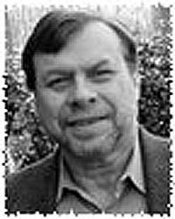What may houses of worship do to advance political causes or candidates?

By Ira Rifkin
Freelance Writer
The Church at Pierce Creek was a non-denominational, conservative Protestant congregation outside Binghamton, N.Y., until the Internal Revenue Service revoked its tax-exempt status for sponsoring a 1992 newspaper ad attacking then-presidential candidate Bill Clinton’s stands on abortion and condom distribution in public schools. Under a headline that proclaimed, “Christian Beware,” the ad asked, “How then can we vote for Bill Clinton?”
Four years after that ad, Clinton running mate Al Gore showed up at the Hsi Lai Buddhist Temple in Hacienda Heights, Calif., for what was billed as a community outreach event. It turned out to be Democratic fundraiser that embroiled the temple in a political scandal involving the laundering of illegal campaign contributions. Two of the temple’s nuns were indicted.
The Church at Pierce Creek and the Hsi Lai Temple are examples of religious institutions stepping across the legal line prohibiting them from engaging in partisan politics-but we know that only because ensuing legal actions made these cases public. Unless there’s some legal action or a source talks, reporters rarely find out about IRS rulings. The IRS does not comment on cases, and embarrassed institutions generally try to avoid negative publicity, unless it serves their political purpose.
In practice, then, the line separating legal from illegal religious involvement is often tough to discern.
Still, religious involvement in political issues is as old as the republic. Religion addresses moral behavior, after all, and few political issues lack a moral dimension. So religious leaders say their beliefs compel them to speak out on issues, and that the First Amendment gives them broad license to do so. Moreover, what candidate won’t jump at the chance to show up at a church, synagogue, mosque or temple to say a few words, shake some hands and maybe gain an endorsement, legal or not?
An IRS handbook, “Tax- Exempt Status for Your Organization,” provides general guidance about the laws affecting 501(c)(3) organizations, the agency’s designation for tax-exempt religious institutions.
The handbook says religious groups are enjoined from participating in any activities-“whether or not substantial”-on behalf of or in opposition to any candidate for public office. Allowed are “certain voter education activities or public forums conducted in a non-partisan manner…”
Additionally, religious institutions may form separately incorporated 501(c)(4) organizations that have a freer hand in engaging in partisan activities.
There’s also nothing stopping religious leaders-away from their houses of worship and on their own time-from working on behalf of candidates. In spring 2002, the U.S. House of Representatives was considering legislation that would change IRS rules to allow houses of worship to engage in an “insubstantial” amount of partisan political activity.
Given the complexity and ambiguity surrounding this issue, how’s a religion reporter to make sense of the issue? The answer, as always, is to turn to sources. Area universities and tax code attorneys can frequently provide the experts needed for local quotes and background. Nationally, two of the most frequently quoted organizations on the issue are Americans United for Separation of Church and State, www.au.org, and The American Center for Law and Justice, www.aclj.org.
Americans United, based in Washington, D.C., is a membership watchdog group that tackles the broad range of church-state issues. AU maintains it is non-partisan, however conservatives say it has a liberal bias. AU filed complaints with the IRS against both the Church at Pierce Creek and the Hsi Lai Temple.
Rob Boston, AU’s assistant communications director, offered the following advice for religion reporters: “When covering a politician speaking at a church, don’t just focus on what the politician says. Follow up on the tax question. That may turn out to be the better story.”
The ACLJ was founded by Christian broadcaster Pat Robertson and is unabashedly conservative. Based in Virginia Beach, Va., ACLJ is a not-for-profit public interest law firm that takes on First Amendment and religious freedom cases. It defended the Church at Pierce Creek in its unsuccessful court appeal of the IRS ruling. ACLJ chief counsel Jay Sekulow, offered this advice: “Reporters must remember that a religious leader has the private capacity to engage in political action just like anyone else, so context and location are key. What’s not allowed from the pulpit is allowed on a public sidewalk. Religious people shouldn’t be presumed to be subversive.”
